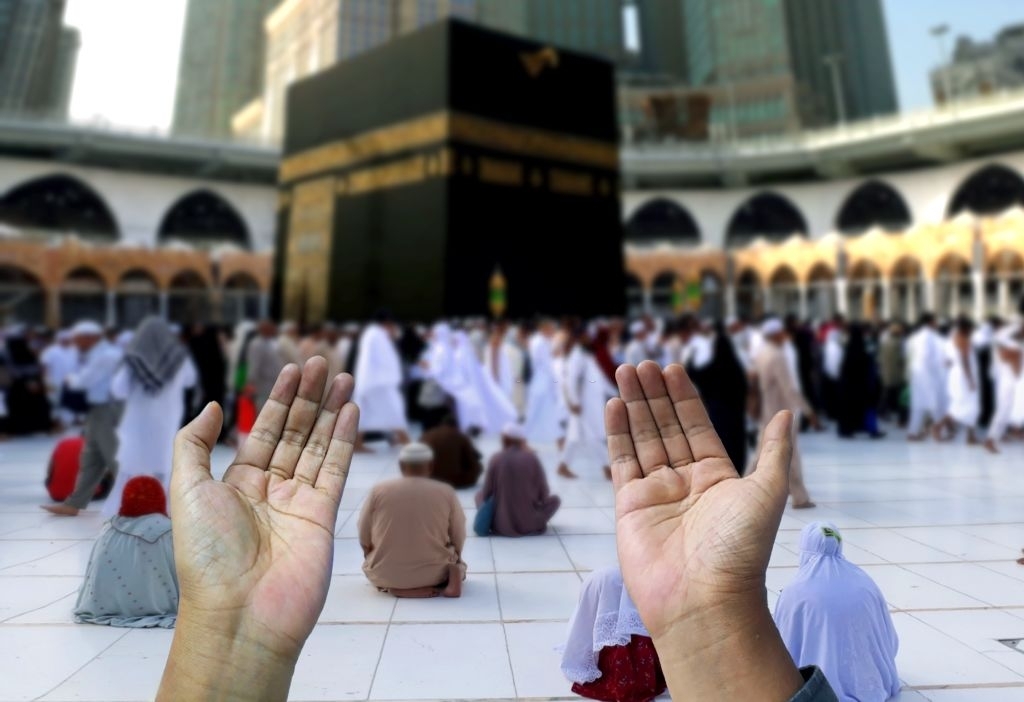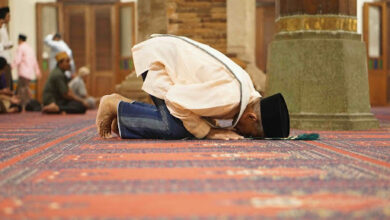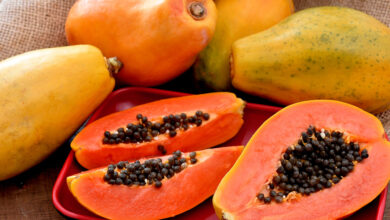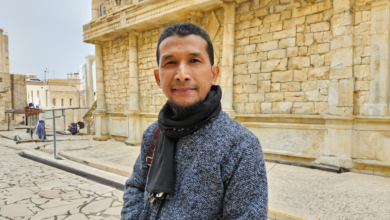
Aspects of Ukhrawi (Hereafter) in Hajj
In the pilgrimage there are analogies with the human journey to the afterlife. Among them, the need for Allah's forgiveness and the pilgrimage to become the cause of forgiveness of sins.
Rasulullah SAW said: "Whoever performs Hajj then does not commit any heinous and wicked deeds, then he will return clean (forgiven) from his sins as when he was born to his mother." (Muttafaq 'Alaih).
Maghfirah (forgiveness) is a matter that is needed by humans when traveling to the afterlife, and the gate to the afterlife starts from death. And Rasulullah SAW taught us when burying the body to ask forgiveness and firmness to Allah "Istaghfiru Li Akhikum Was-alu Lahu Bit Tatsbit Fainnahul Aan Yus-al" (Narrated by Abu Dawud) ask Allah for forgiveness and firmness for this brother of yours because soon he will be questioned.
When the prospective hujjaj / hajj leaves his home, he must leave and be separated from his family, relatives, and close loved ones, leaving his property other than the provisions needed for his journey, and he must leave the country, hometown, and homeland. and his birth to fulfill the call of Allah SWT to the holy land. That event will happen when a person is called by Allah SWT with death to the eternal land (qubur).
When arriving at the miqat, the prospective hujjaj must take off all outer and inner clothes, oversized clothes, and all worldly attributes/ranks. He must change the cover of his body with the permitted clothes, namely two pieces of ihram cloth (one is sheathed and the other is draped over her body). This is what will apply to every Muslim when starting the journey to enter the gates of the afterlife, namely death. He will only be clothed with three pieces of shroud on his body, while all worldly clothes are not carried or worn.
When the 9th of Dhul Hijjah, the hujjaj gathered to perform wukuf in the field, namely Arafah, while echoing the strains of prayer, praying to Allah, acknowledging and regretting all the sins they had committed while hoping for forgiveness and the pleasure of Allah SWT. As we too will gather at one stopping place, namely makhsyar who will all need His intercession, help, ease and mercy.
All that will remind us of death and the journey of the hereafter. Thus, someone who will perform the pilgrimage is expected to be more aware of and understand the meaning of the trip to be carried out as well as possible. This awareness is then applied in everyday life, either individually, in the family, or in society in general.
The Hajj and Sacrifice are intertwined
Hajj and sacrifice cannot be separated from each other. Both in terms of history, implementation time, and fadhilah or benefits. Muslims all over the world accompany Hajj by performing Eid al-Adha prayers and slaughtering sacrificial animals as symbols of Allah's religion.
Allah Most High said: “So establish prayer for your Lord; and sacrifice" (Surah Al Kautsar).
Sacrifice is a worship that is featured on the feast of Eid al-Adha. Eid al-Adha itself means to return to sacrifice, namely to slaughter a goat, cow, or camel, with certain conditions after the Eid al-Adha prayer.
Narrated from 'Aisha Ra. He said that the Prophet SAW said: "There is no deed that is performed by humans on the Feast of Sacrifice, is more beloved to Allah than slaughtering a sacrificial animal. Verily the sacrificial animal on the Day of Resurrection will come with its horns, feathers and hooves, and verily before the blood of the sacrifice touches the ground, it will be accepted by Allah. So lucky for all of you with the reward of the sacrifice." (HR. Tirmidhi, no: 1413)
The wisdom and benefits of sacrifice include the following:
1) Placing love for God as the highest/greatest love.
Since ordered, what is asked to be sacrificed is an item/something that is very loved/favored, which shows that Allah is testing whether a servant really/really loves Allah above all else, willing to sacrifice anything for the one he loves. At the same time, confirming that Allah is the owner of everything including anything that is/entrusted to humans.
2) Get supplies of piety.
Humans living in this world must seek taqwa provisions for salvation in the hereafter, by carrying out God's commands, and staying away from His prohibitions. A pious man will grow his feeling that he is a servant/servant of his Lord. Sacrifice is a form of obedience and submission to God's commands.
3) Means of getting closer to God.
Sacrifice has the root word qaruba, which forms the words: qurb (near), taqarrub (closer), aqriba '(relative). As you get older, you will also get closer to death, which means you will get closer to meeting God. With qurban, at least it makes you remember and convert, which in the end will meet Him in goodness.
4) Expecting the sanctity of self and wealth.
Every good deed is a charity, which serves to purify oneself and property. Sacrifice is a good deed that is very pleasing to Allah on Eid al-Adha (HR. Tirmidhi).
5) As penance, to get forgiveness (Narrated by Al-Bazzar and Ibn Hibban).
"O Fatimah, stand by your victim and witness him, indeed the first drop of his blood is forgiveness for you for your past sins."
6) Cultivating the nature of being easy and destroying the nature of madzmumah.
Carrying out the sacrifice with full appreciation can cultivate the nature of being easy in the form of obedience, submission to His commands, being generous to others, repenting, increasing gratitude, and so on. Besides that, it also eliminates the nature of madzmumah such as love of the world, miserliness, stingy, arrogant, revenge, jealousy, etc.
7) Increase affection.
It is undeniable that the sacrifice is beneficial for others, fosters and increases affection, especially between the rich and the poor, strengthens the tenuous relationship, forms togetherness and harmony, because the community stays in touch with each other.
8) Syiar Islam, sunnah of Prophet Ibrahim AS.
Sacrifice is a symbol of Islam that preserves the millah or sunnah of Prophet Ibrahim, the Prophet who was nicknamed Khalilullah (people who are very close to God).
9) Rewards and ease of climbing on shirat, etc.
“There is no deed performed by humans on the Feast of Sacrifice, which is more beloved to Allah than slaughtering the sacrificial animal. Verily, the sacrificial animal on the Day of Resurrection will come with its horns, feathers and hooves, and verily, before the blood of the sacrifice touches the ground, it will be accepted by Allah, so you are all lucky with it. the sacrifice." (Narrated by Al-Tarmuzi, Ibn Majah and Al-Hakim), in another narration "Glorify your sacrifice for it will be your mount on the footbridge (shirat) on the Day of Resurrection."
There are several important points that we can extract from Learn Hajj and Sacrifice. First, it refers to QS. In the second verse of al-Kautsar, normatively the two worships are related sharia and were prescribed in the same year, namely in the 6th year of Hijriah.
Second, the Shari'a was established by Allah not without purpose, but actually through the means of pilgrimage and sacrifice, humans can communicate spiritually with their Lord.
Outline. There are two main purposes in Hajj and sacrifice. That is:
- Through the Shari'a of worship, Allah deliberately provides opportunities for humans to compete in their lives, choosing something good among the bad for themselves, both individually and communally and socially.
- Through this means of worship, humans can gradually reach the perfection of the soul that will not end with death and does not end in the limits of the mortal world. Worship encourages each individual to communicate intense with al Haqq towards the true internalization of self.
The lesson that can be drawn from the two Shari'a is that a person's piety can be measured from two dimensions, namely the personal dimension and the social dimension. Pious personally is measured by how strong a person's faith and perseverance is to worship sincerely and sincerely suddenly' Rasulullah SAW. While socially pious is measured by how much a person cares about social life, as the implementation of religious values that Rahmatan Lil Alamin.
Allah knows best.
...
Written by: Ahmad Fauzi Qosim, Da'wah and Humanitarian Activist, Secretary of the Sharia Council Dompet Dhuafa. [DDHKNews]



